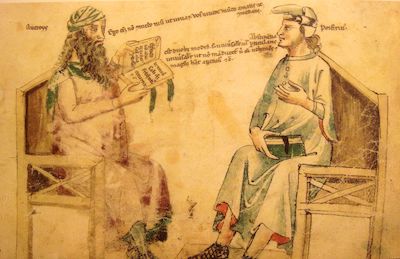
Hosted by British Society for the History of Philosophy in association with the University of York Department of Philosophy and Manchester European Research Institute and supported by Routledge, The Subject Centre for Philosophical and Religious Studies and the UK Kant Society
Location: The Geoffrey Manton Building, Manchester Metropolitan University
Dates: 15-17 April 2009
The theme of this conference is the history and nature of transcendental philosophy. The conference seeks to bring together philosophers working on a broad range of topics pertaining to this theme. Topics to be covered include: the concept of the transcendental in Kant; the sources of Kant’s concept of the transcendental; post-Kantian transcendental philosophy; Heidegger’s concept of the transcendental; Husserl’s concept of the transcendental; the transcendental philosophy of the Stoics; critical theory and transcendental philosophy; the nature of transcendental arguments; transcendental intersubjectivity.
The closing date for registration is 1 April 2009.
Delegates are asked to arrange their own accommodation. Here is a list of hotels which are located near to the conference venue.
The conference runs from midday on 15 April to midday on 17 April. The AGM of the Society will take place on the first day of the conference.
Lucy Allais (Witwatersrand/Sussex), ‘Kant’s Transcendental Deduction’
Gary Banham (MMU), ‘Kant’s Transcendental Philosophy of Nature’
Howard Caygill (Goldsmiths), ‘Transcendental Heat: From Telesio to Kant’
Wolfgang Ertl (Tokyo), ‘Kant’s Scholastic Conception of the divine intellect and the distinction between things in themselves and appearances’
Richard Fincham (American University of Cairo), ‘The Role of Humean Scepticism in the Development of Post-Kantian Transcendental Philosophy’
Avery Goldman (De Paul), ‘Kant, Heidegger and the Circularity of Transcendental Inquiry’
Sacha Golob (Cambridge), ‘Transcendental Philosophy and Fundamental Ontology’
Anil Gomes (Birkbeck), ‘Was Kant a Disjunctivist?
Keren Gorodeisky (Auburn), ‘No Poetry, No Reality: Friedrich Schlegel’s Transcendental Method in the Face of Post-Kantian Scepticism’
Dietmar Heidemann (Luxembourg), ‘Appearance and thing-in-itself: A transcendental or a sceptical distinction?’
Nigel Hems (MMU), ‘A New Interpretation of Kant’s Refutation of Idealism’
Joanna Hodge (MMU), ‘Retrieving Husserl’s Horizon for Transcendental Philosophy’
Julia Jansen (Cork), ‘Imagination in Transcendental Philosophy’
Wayne Martin (Essex), ‘Stoic Transcendentalism?’
Brian O’Connor (Dublin), ‘Critical Theory and Transcendental Criticism’
Christian Onof (Birkbeck), ‘Kant and the Transcendental Self’
Adrian Piper, ‘Kant’s Transcendental Analysis of Action’
Ulrich Schlösser (Sheffield), ‘Kant on Communicability and Idealism’
Dennis Schulting (Amsterdam), ‘Transcendental Religious Arguments’
Marco Sgarbi (Verona), ‘The Shift in the Notion of “Transcendental” from Metaphysics to Logic: Genesis and Sources of Immanuel Kant’s Transcendental Philosophy’
Joel Smith (Manchester), ‘Can Transcendental Intersubjectivity be Naturalised?’
Robert Stern (Sheffield), 'Moral Scepticism and Transcendental Arguments: Can Korsgaard's Strategy Work?'
Silvia de Bianchi (Rome), ‘Kant’s Transcendental Idealism: Dynamics of Synthesis’
Gabriele Gava (Pisa), ‘Does Peirce Reject Transcendental Philosophy?’
Erman Kaplama, ‘Kant’s Opus Postumum and Cosmological Transcendentalism’
M. Kolkman (Warwick), ‘Fichte’s Philosophy of Freedom’
Ro Smith (York), ‘Stroud and Transcendental Arguments’
Rachael Wiseman (York), ‘Reading Wittgenstein as Kant: McDowell’s therapeutic transcendentalism’
Dr Gary Banham, Department of Politics and Philosophy, Manchester Metropolitan University, Manchester, M15 6LL
Dr James Clarke, Department of Philosophy, University of York, York, YO10 5DD

Averroes and Porphyry